Quiet Enjoyment
by Rochelle Manderson
If you sign a lease for commercial or retail premises, one of the things that will most likely be in your lease is the covenant the landlord gives the tenant for quiet enjoyment.
Covenant is a fancy word in the law that means promise.
The landlord is promising the tenant that they will give quiet enjoyment – allow the tenant to have quiet enjoyment of the premises during their lease, so long as the tenant is not in breach of their obligations, such as paying rent.
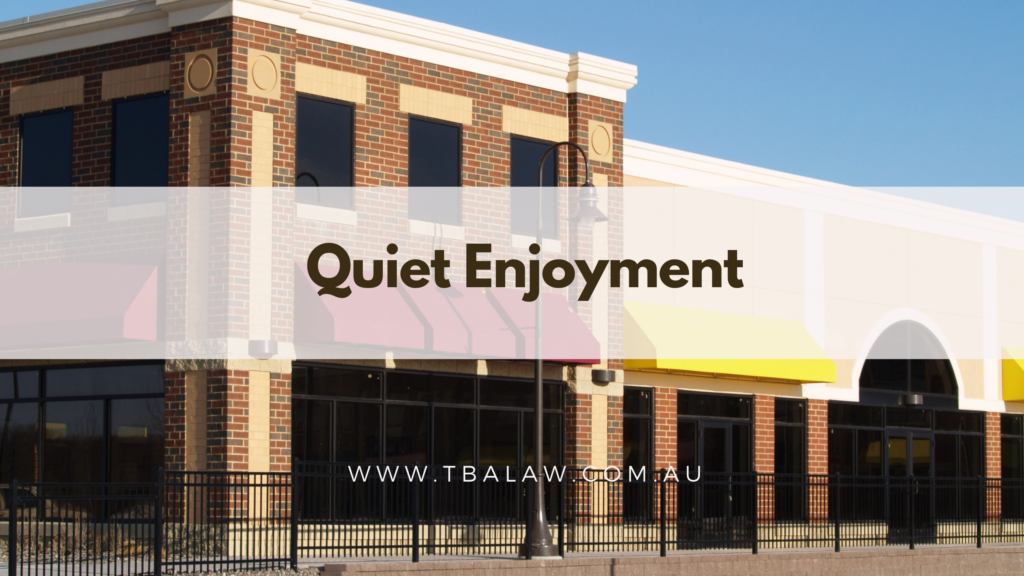
Quiet enjoyment means it allows the tenant to enjoy the premises and use the premises for its prescribed purpose (that’s also in your lease) without interference from the landlord or from anybody else that may hold an interest in the property. So this includes, if the property’s mortgaged, it includes the mortgage year on title, might be a bank, or it may include somebody else that may have a claim over the land of some way.
It’s not just peace and quiet – it’s allowing the tenant to do what they need to do to run their business as is described in their lease for their prescribed purpose of the land.
This also means that the landlord can’t just show up at the premises.
There are some circumstances where the landlord can come in into your premises without being in breach of the quiet enjoyment provisions. So what that means is the landlord can enter the premises to remedy or fix structural issues with the property, if they’re required to do so under legislation or under an order.
A landlord can also reenter the premises for them to inspect the premises. There should be provisions in your lease with regard to inspections of the premises. If they’re abiding by those, they can inspect their premises. These will not breach. If you’ve got a good relationship with your landlord, one would hope that your landlord would be talking to you about these things as well.
Quiet enjoyment can also mean, and this gets a little bit more complicated if their landlord needs to actually do some more drastic construction and whatnot in the premises, they can actually look at relocating the tenant if that’s required.
So what happens if the covenant of quality enjoyment for the tenant is breached by the landlord unlawfully? You can demand compensation from the landlord for that breach.
If your compensation is only going to be the loss of a day’s work at your cafe, and you might have a claim of maybe $5,000, this is going to be relevant to how far you’re going to be able to go or would be really in your best interest to go to claim. Compared to if you had lost $20,000 worth of stock and two weeks’ worth of trading, then you may have reasonably lost about $50,000. You can see how the greater the compensation that you are demanding or trying to get back, the greater the risk that you may be willing to take, and the greater the expenses that you may be willing to incur as a result.
If you’re a tenant, whether it’s in your lease or not, you are entitled to quiet enjoyment of your premises, which means that you can use your premises for your permitted use in a lawful way without the landlord or anybody else who claims an interest in the property coming in and preventing you from doing so.
As a tenant, you must be compliant with your obligations under the lease. So you must be paying your rent. You must be using the premises as you’ve agreed in the times that you’ve agreed, and looking after the premises as you’ve agreed to do.
If you’re a landlord, you need to allow for the tenant to have this quiet enjoyment, remembering of course that you can access the premises for lawful reasons such as inspections, repairs, or anything where you’re compelled to do under the legislation, or under an order to do so. If this is breached, the tenant may be entitled to compensation for their reasonably foreseeable loss.
If you have questions, get in touch with our team at 1300 043 103 or send us an email admin@tbalaw.com.au.

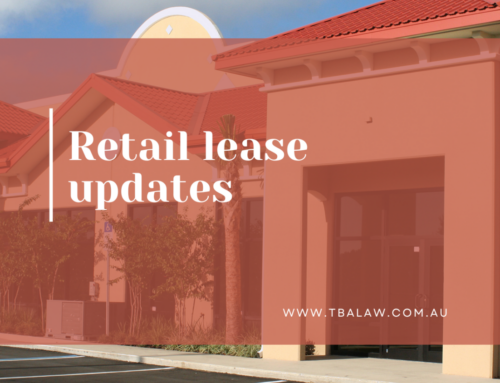
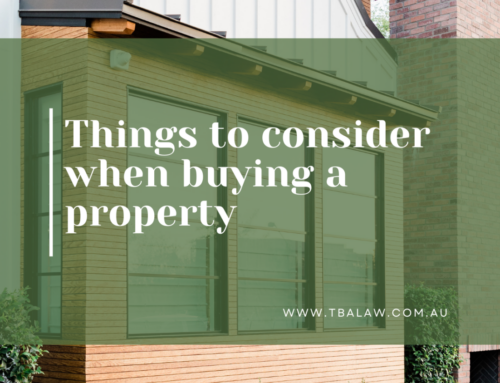
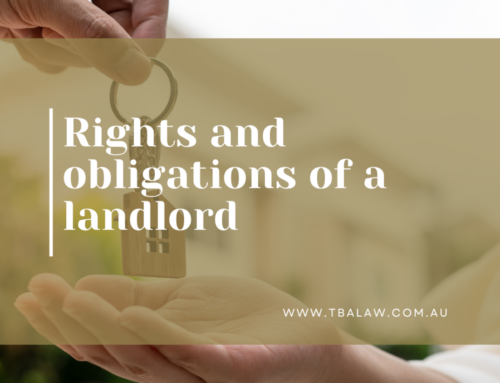
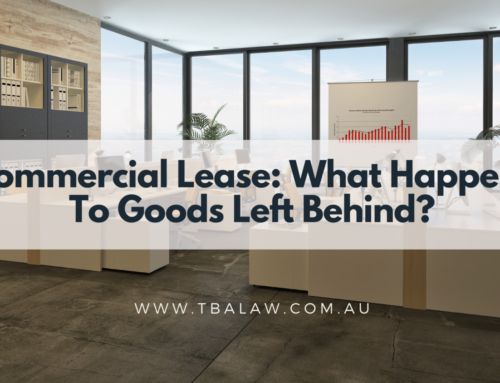
Leave A Comment